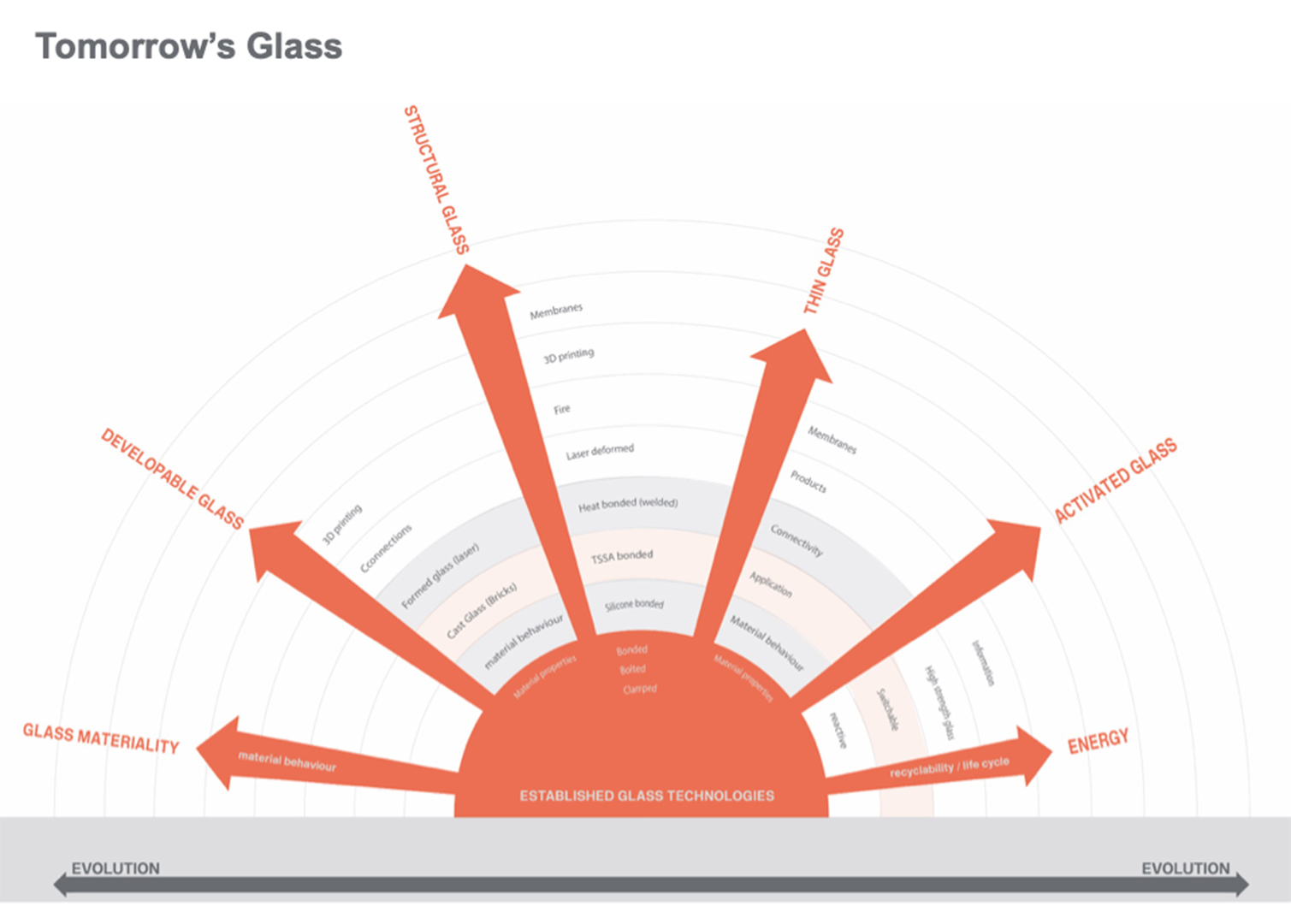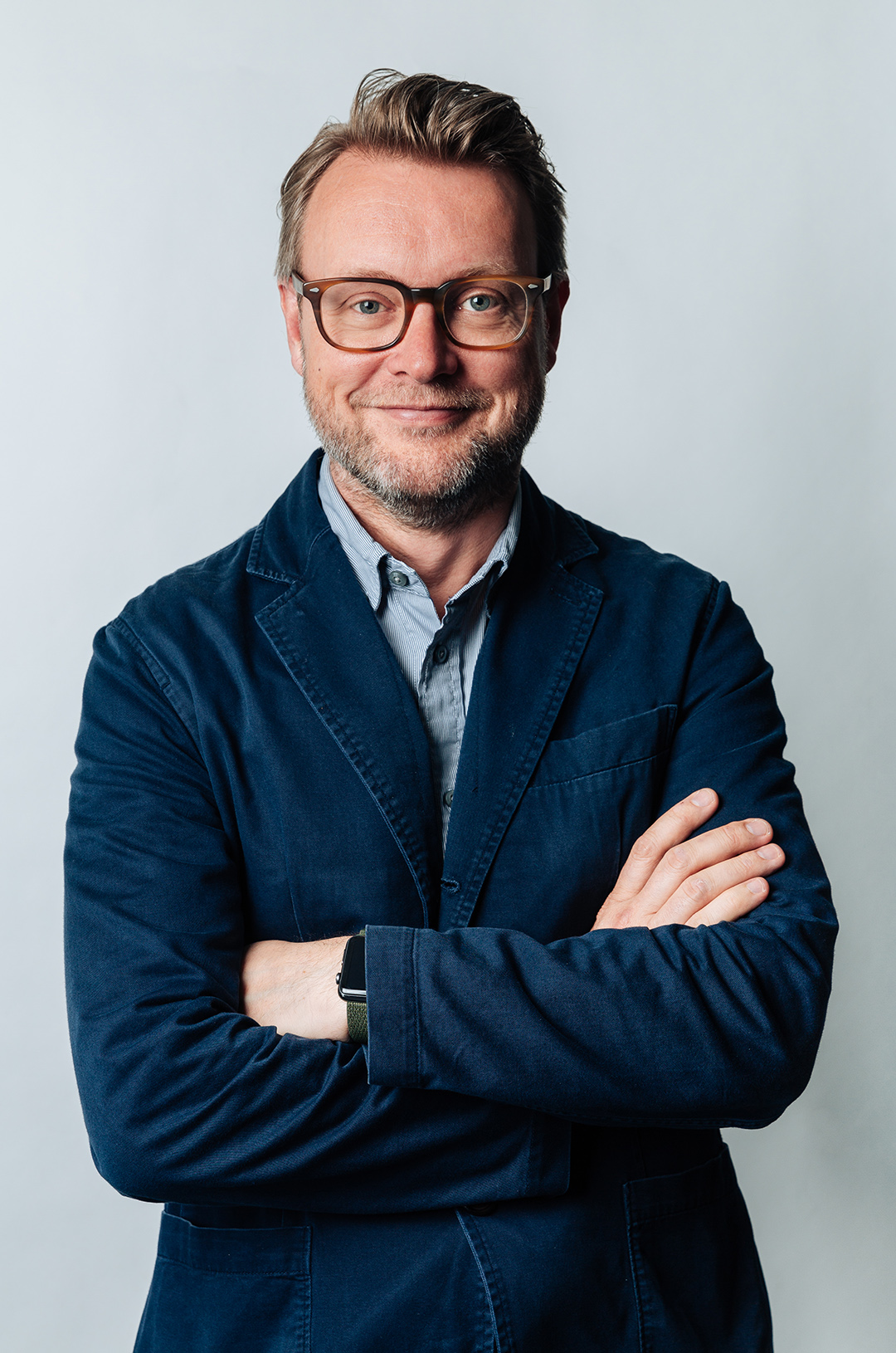Pushing the boundaries of Architectural Glass
James O’Callaghan has been appointed Professor of Architectural Glass. The Chair of Architectural Glass deals with glass in a wider context, both in the built environment and in building envelopes. It is about pushing the boundaries of materiality, performance, form, energy, and the aesthetics of architectural glass.
“Architectural Glass is a wide area of expertise with a holistic approach to glass. This includes structural glass, but also questions on how we can create smarter building envelopes and how we can develop our knowledge of glass. Even though glass has been in existence for over 4500 years, we still need a better understanding of how glass works as a product. I want to explore how it can and will evolve,” tells O’Callaghan. The Chair of Architectural Glass is part of the Glass & Transparency Research Group, where several key themes are developed. Prototypes of cast glass bricks, thin glass, glass sandwich panels, and a glass swing show how the material glass can still be further explored.
Simultaneously, the question arises how glass informs architecture, and vice versa. How will architecture use glass, how will new forms and technologies be adopted? “From new ideas and processes, architecture will be shaped differently. This, in turn, will inspire further steps. I envision the Chair of Architecture to become a platform to push this and explore the possibilities of Architectural Glass,” explains O’Callaghan.
James O’Callaghan is no stranger to TU Delft. In the academic year 2015-2016, he acted as Visiting Professor at BK Bouwkunde. From his professional work, he is perhaps best known from designing the glass stairs, bridges, and other structural elements in Apple’s iconic retail stores around the world. O’Callaghan: “The TU Delft holds a strong pedigree in material research and has a leading role in the world. I have been pushing the boundaries of glass for more than 15 years in my own professional work and research. Interaction with students and researchers is key for developing fresh ideas. The wiser you become over the years, the less inventive you become. Interaction with students, exploring what I already know in combination with what I cannot even imagine, that gives new ideas.”
The Chair of Architectural Glass will focus on both research and education. “Research, to me, is about rigor,” tell O’Callaghan. “It is about exploring why things are the way they are. Question everything with the curiosity of a five-year old. My research experience stems from a professional background. This gives me the necessary perspective to question the relevance of academic research. From my professional background, I have a better understanding of the commercial value and viability, and the potential for application of research results.” For both research and education, O’Callaghan believes the success lies in a combination of being bold, brave, and curious about material behaviour. “Do not let your projects be inhibited by established knowledge and industry. Always be rigours, brave, and curious. If you look at your projects from these three perspectives, better results will emerge.”
James O’Callaghan is a structural and façade engineer with over 20 years of experience. He co-founded Eckersley O’Callaghan in 2004, is a member of the Design Council Board of Directors (UK), the HS2 Design Panel (UK), and a member of the South East Design Panel (UK). He has taught at the University of Portsmouth and was Visiting Professor at BK Bouwkunde in the academic year 2015-2016.
He received the 2016 Milne Medal from the International Association of Bridges and Structures for Excellence in Structural Design, and the 2017 Phoenix Award for his contributions to structural glass. In 2018, he was elected as a Fellow of the Royal Academy of Engineering. In 2019, James O’Callaghan was awarded the IStructE Gold Medal.
Ulrich Knaack (Head of Department): “The department Architectural Engineering + Technology is very happy to have James O´Callaghan appointed as professor for Glass in Architecture. The complex material glass became in the last decades a substantial building material - and James stands as one of the very few for perfect glass engineering. Great match!”


